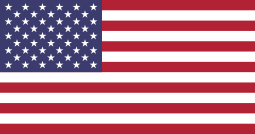Preventing Winter Colic
Impaction colic is caused by a blockage in the bowel usually by large, dry masses of hay or feed. The intestines make several hair turns and changes in diameter making it difficult for large solids to pass through. The risk of impaction colic typically increases in the winter months for several reasons. The biggest are environmental factors such as water freezing and the lack of grass pasture.
Water
Water plays a crucial role in the digestive process. It lubricates the colon and intestines and moistens food making it easier to pass through and preventing a blockage. Horses drink 10-12 gallons of water a day. Clean, unfrozen water should always be readily available.
Another key water source you may not have thought about is grass. Grass is 85% water. When the grass dies off for the winter, the ability to graze dies with it and so does the additional water intake. Hay contains 20-30% less water than grass making it more difficult to digest and more likely to create a blockage.
One way to make up for lost water consumption is to encourage your horse to drink more by offering warm water. Horses will drink 40% more water if it is slightly heated which can be vital in preventing winter colic. Providing a heated water source will not only encourage them to drink more, but it will also prevent you from having to constantly break ice.
Feeding Program
Maintaining a consistent feeding routine is imperative. High quality hay and less grain are recommended during winter to help reduce the risk of colic.
Ideally, 90% of your horse's diet should be forage. During winter, there is a tendency to increase grain in order to add calories. However, this can actually do more harm than good as it can increase the risk of winter colic. If your horse is struggling to maintain a healthy weight, you should contact your vet as well as ordering a hay quality test and a fecal egg count if one has not been done recently. Not only can parasites effect your horse's weight, but a heavy enough load can cause colic.
Hay rationing can increase the risk of colic. It creates unnecessary stress, allows stomach acid to buildup, and slows or completely stops digestion all together. Keeping the gut active is your horse's natural line of defense against blockages.
Excess acid on an empty stomach is a recipe for trouble. Hay is nature's perfect acid buffer. If your horse goes consistently for more than 3 hours without hay, you greatly increase the risk of colic, ulcers, diarrhea, and behavioral issues*. Slow feed hay nets can help you provide access to forage 24/7. By simulating grazing, your horse is closer to his natural feeding behavior and his digestive tract is able to function properly.
Minimizing meal time stress is just as important as what you feed and how often. If your horse is anxiously awaiting his next meal, he may instinctively go into survival mode inhaling mouthfuls of hay or feed increasing the chances of a blockage. Slow feed hay nets can help break this cycle too. Once your horse learns that forage will always be available, he will begin to slow down, calm down, and self regulate*.
To avoid winter colic you want to avoid stress eating, minimize stomach acid, and keep the gut moving. To do this you want to provide plenty of water and constant access to hay. Our slow feed hay nets mimic grazing by metering hay slowly over a longer period of time, preventing excess acid and alleviating stress. See what net fits your feeding routine. Have questions or need help choosing a net? Contact us.
*Feed Your Horse Like a Horse - Dr. Juliet Getty
 Made In USA
Made In USA
















